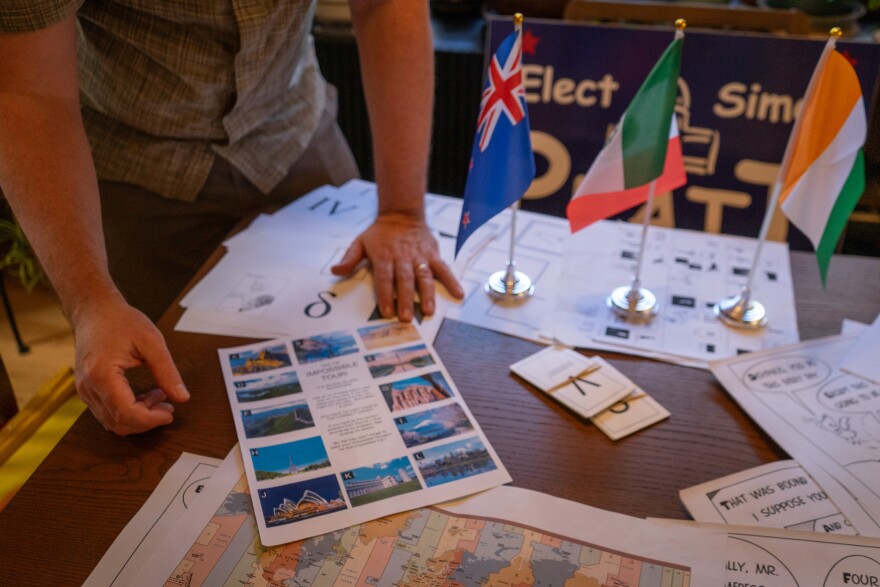Stephen Roberts never set out to make puzzles as a career. He studied computer science and went to film school. When his daughter was born, he left his full-time job and started to pick up side gigs.
That eventually led to puzzle creation.
“This is nothing like I thought work would be,” he said.
From his home in Salt Lake City, Roberts designs large-scale puzzle hunts for companies to use in orientations, team-building exercises and retreats. Each team gets a packet of material and some ground rules. Then they are set loose on an adventure. They might find themselves looking for clues and interacting with live characters. They have to figure out how all the pieces fit together.
“I think it was probably in high school when I met other people who were into games and puzzles, and they were smart and looked at the world differently, and it was a way to connect,” he said. “I think that's part of what sparked my love of games, is the connections that they can create.”

The games he designs are team-based, which mixes up coworkers who might be new to each other. Everyone needs to learn how to communicate. Everyone brings different ways of thinking. Like the assembled teams, Roberts’ puzzle hunts are a series of puzzles that fit together in some way.
In fact, when he and his wife Gretchen Case first met, they bonded over a shared love of puzzles. They even put together a scavenger hunt for their wedding weekend.
“It was in downtown Asheville, North Carolina, and we got people in the shops involved, and did things on the street,” Case recalled with a smile. “And I remember thinking I spent more time on the puzzle hunt than I did on the wedding ceremony.”
Strewn on the family dining room table are props Roberts has used in his games. Fake campaign signs and cartoons and semaphore or signalling flags.
“Every time I work on these, I find myself with something that I need help with, and often Gretchen steps in to help me,” he said.


The puzzles have become something of a family affair. His wife has done voiceovers, carried things and helped clear rooms. Whatever needed to happen, “we just made it happen,” she said. Even their 14-year-old daughter pitches in to test the puzzles.
“I love seeing how she thinks and what she comes up with, and that really helps me in the design process.”
Work can mean a lot of things and can look like a lot of things, and his wife appreciates that their daughter is exposed to that. Gretchen, for her part, works a more conventional job.
“I go to an office and I do traditional things, and I think that's fun,” she said. “But I love that Steven has a totally different idea of work.”
Roberts sees a bigger message in the connections that he’s building with his family and his customers through play.
“We as human beings, we tell stories, and a lot of these, and all of these games have some kind of narrative arc to them, where we want to make sense of things. And these games give us a chance to do that,” he said.

Roberts’ father-in-law, Alan Case, recently moved in with the family. He spent his professional life as a chemist.
“This is certainly not what I would have considered work when I started,” Case said. “This was a game, and it didn't fit with my concept of what was work. But he's made a successful venture of it. I'm proud of him.”
Now, at the end of the day, the family of four can gather around the table – a perfect number of players for a game.







